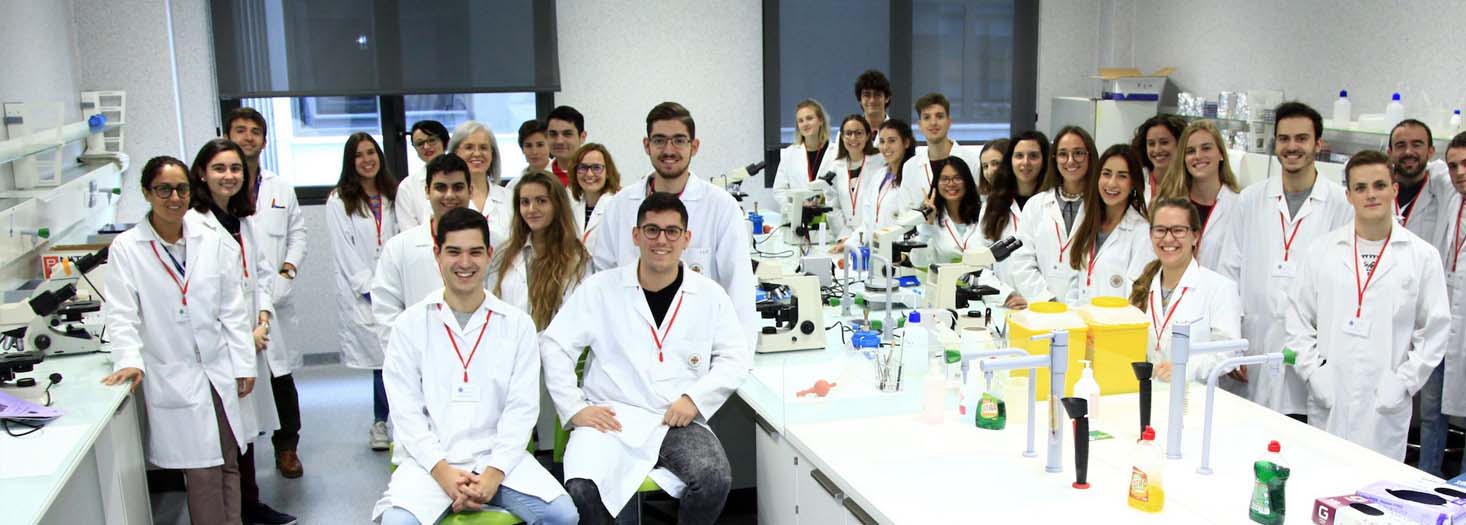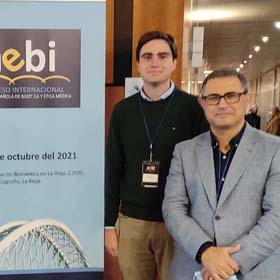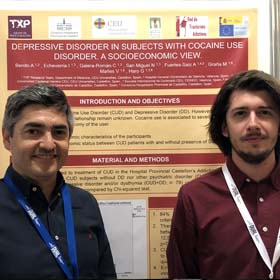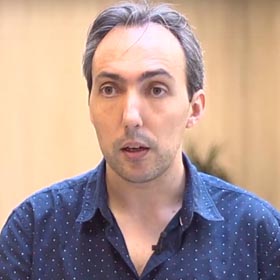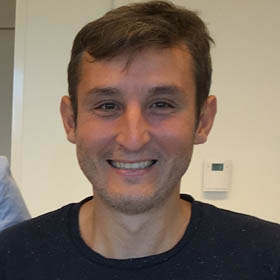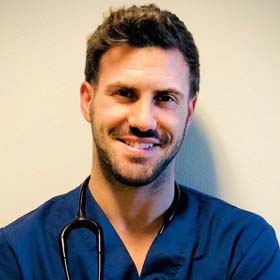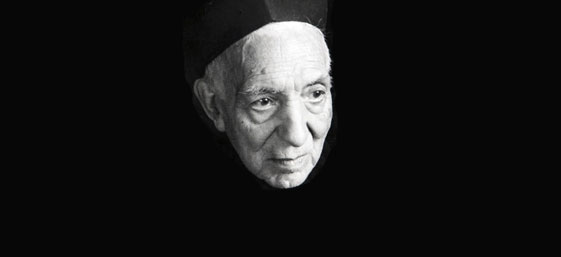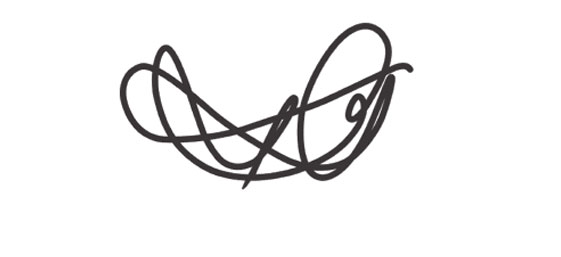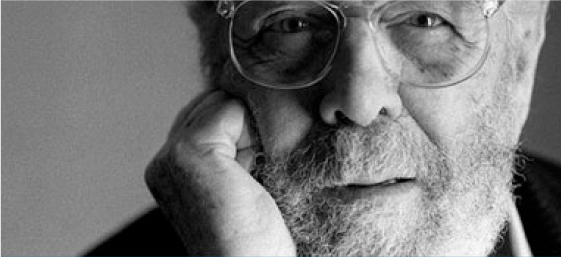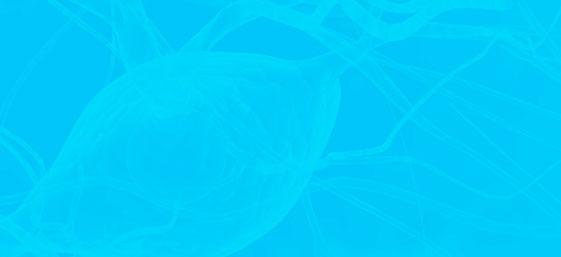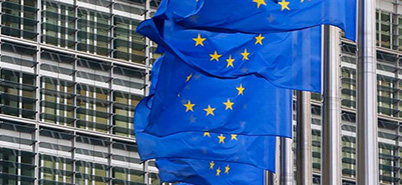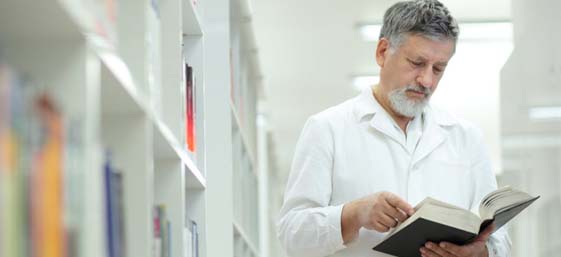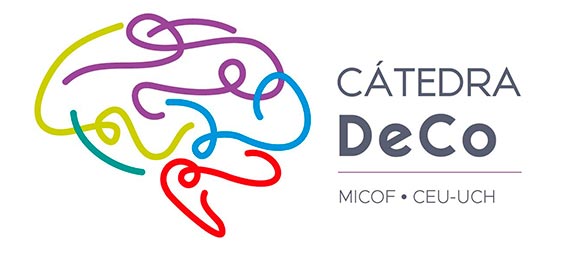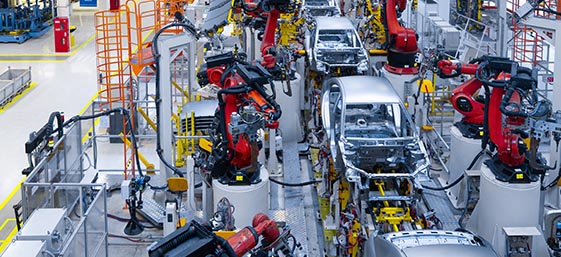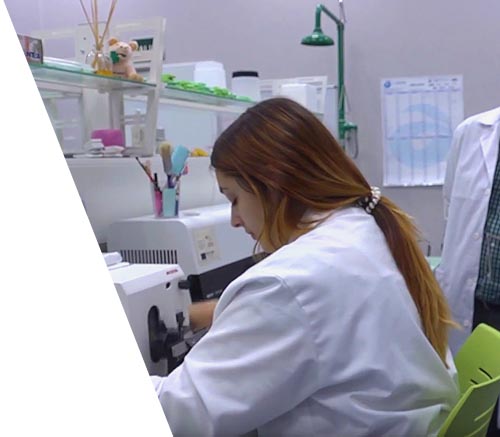
Research: is it about building an impressive CV? Or is it about becoming a better lecturer… or student?
To carry out research you have to keep up to date with the latest developments in the field. Lecturers who are also researchers therefore have an excellent grasp of cutting-edge knowledge in the field they teach in and are themselves also trying to make a contribution to scientific progress.
The issue of the transfer of knowledge from universities to ‘real-world’ applications is a hot topic, but we sometimes forget that the first port of call for the transfer of the research results has to be the lecture hall itself. Lecturers who are also researchers can give their students a better insight into the future challenges in their field. They can show them how to carry out research themselves, so that they can then autonomously seek out new knowledge throughout their future careers. And there are also opportunities for students to form part of university research groups.
That’s why at the University we don’t just do R+D, but something we call I+D. That’s Investigación y Docencia, in Spanish – Research and Teaching..
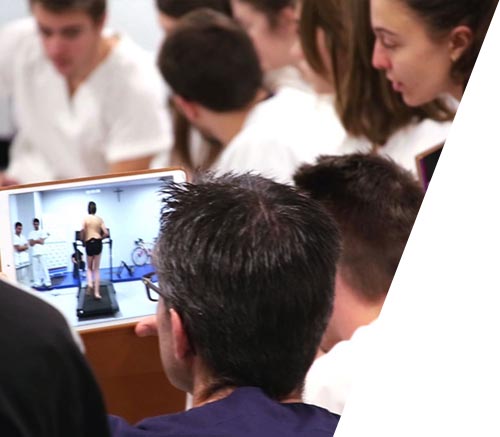
Research: is it just about getting your name in top journals? Or is it about finding solutions for real social problems?
The university rankings make a big splash, but there’s one “impact factor” that they don’t measure and yet which is of incalculable value: the impact that research can have on the lives of ordinary people and the problems they face on a daily basis. When research focuses on real problem and provides innovative solutions to it – that’s a real impact. It affects all our lives – for the better.
That’s the motivation which drives research at this University. The position in the rankings, CVs, research grants – all this is important. But what we really care about are people, and that shines through in our research too.
We want to do science, but with a conscience: what we call #CienciaconConciencia
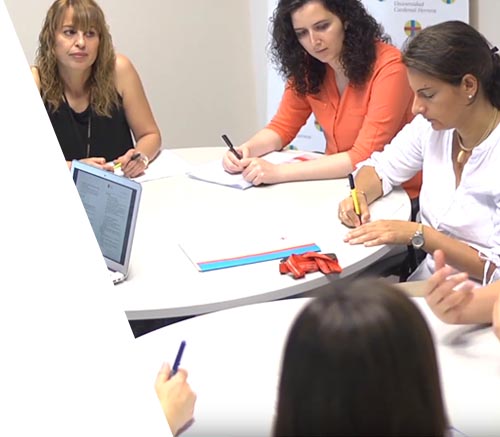
Research: is it about competing with others? Or working together to help others?
Research can be viewed as a competitive exercise between different groups of people – competition can be healthy and lead to progress. But it’s also true that we’re always stronger together. So, we prefer to work together with other people, for other people: by researching with others, we can help each other and everyone else. We have a wide range of projects and interdisciplinary research groups: we achieve the best results by combining the very best of each of our research areas.
Pharmacists, neurologists, mathematicians and IT experts work together at the Cátedra DeCo research group, to detect early-stage cognitive impairment. Physiotherapists, nephrologists, nutritionists and psychologists all participate in the GoodRENal project to improve the quality of life of patients with chronic kidney disease.
And there are many more examples of this. Because we think that, by working together, we can find comprehensive solutions. A narrower approach simply wouldn’t be as effective.
That’s why our researchers like to work together with others, for others.
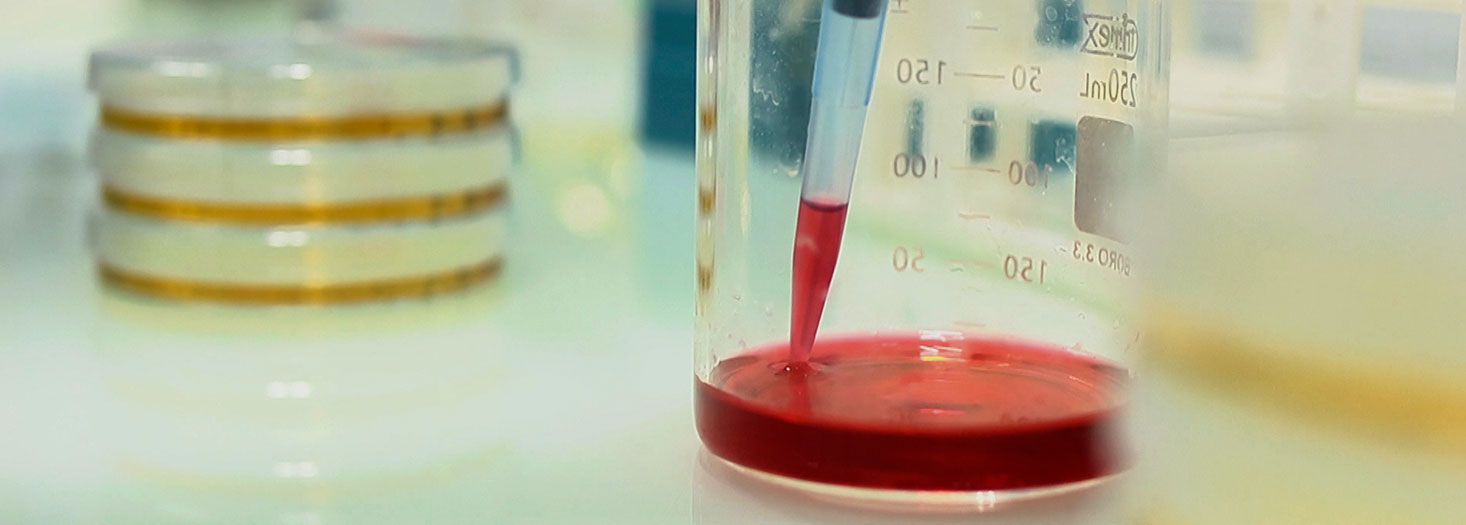
Reasons to do "Science & conScience"

U = d + i
This University is the result of bringing teaching (docencia) and research (investigación) together. In general, being at university gives students the opportunity to learn by taking advantage of the knowledge that other people have already discovered– which is great. But where CEU is different is that students can also make their own contribution to knowledge in their field. So, this University is a place where knowledge is conveyed to students, but it’s also a place where knowledge is expanding and further contributions to scientific progress can be made.
That’s why our lecturers are known as PDI or personal docente investigador: teaching and research staff. The knowledge that they convey in lectures derives from their keeping up to date with the latest developments in their fields and by contributing to such progress with their own research projects. They present their results at conferences attended by experts in those fields, they publish studies in international journals, and they lead projects alongside research institutions from across the world. But at CEU students can also take part in this research themselves in a variety of different ways.
You degree might be your way into a career in research. But where to start?
Start off with a coffee – or with science?
For those who really like science, at CEU it’s something you can do even while you’re having a coffee. One of the activities of the International Student Congress is what’s known as #CaféconCiencia – a coffee with a dash of science. Our researcher-lecturers tell the full story behind what they do while having a coffee with a group of interested students in the relaxed surroundings of The Hub 101. They choose the coffee they want, ask what they want and discover what time spent doing research is really about – a prelude for them to take up the baton themselves.
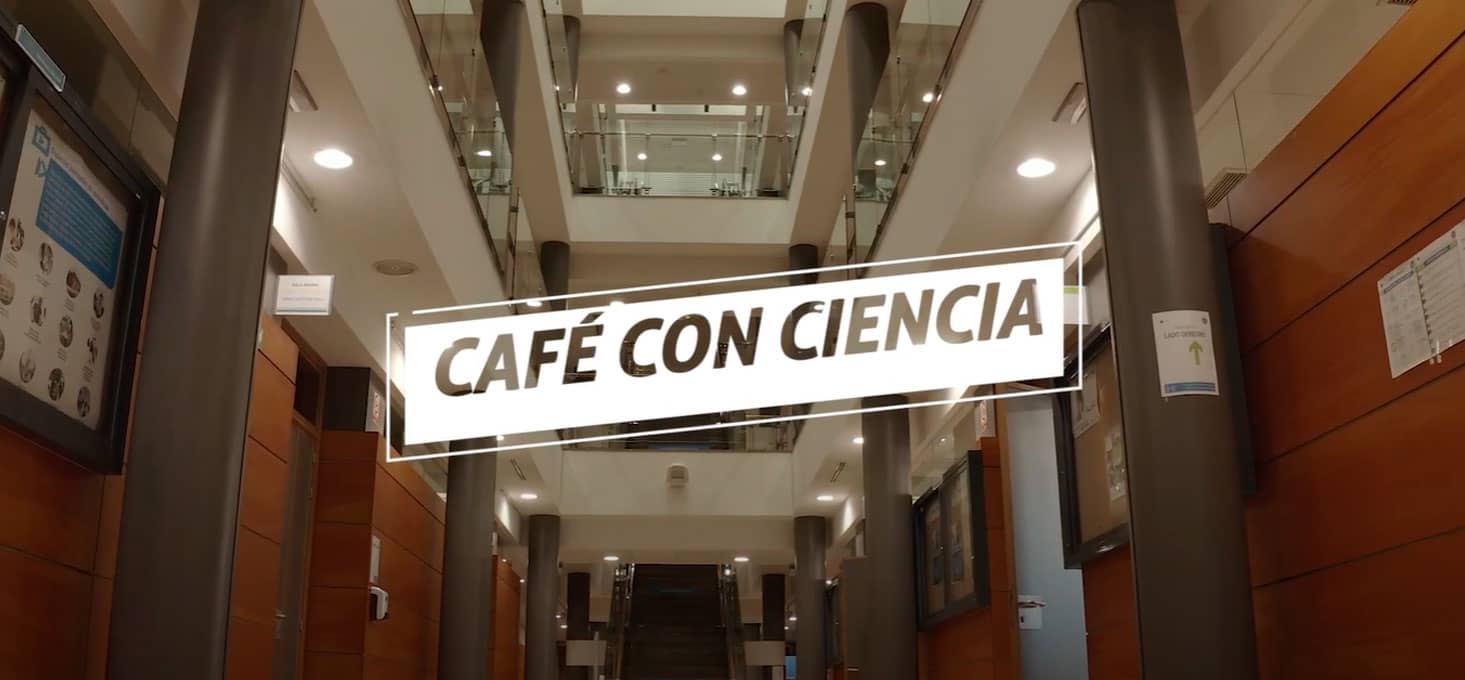
#Café
conCiencia
R+D and R+T – research and teaching combined
A significant part of the grants available at the Office of the Vice-Rector for Research are aimed directly at scientific projects which involve undergraduate students directly in research teams, allowing them to participate in research activities alongside their lecturers. These projects form part of the I+Docencia (i.e. research and teaching) programme. But why do students sign up for this? What does it mean for them? And what contribution do they make to their lecturers’ work?
Presenting research results: here first and then across the world
CEU has organized an international student congress – the Congreso Internacional de Estudiantes every year since 2003, enabling students to present their first research studies in the same way as at regular academic conferences. And the best projects are awarded prizes. It offers students a way to prepare, at any early stage, for what conferences and research meetings are really like, rubbing shoulders with top scientists. The Congress is all about rehearsing for the real thing – but then, when our students take their talks out to professional conferences, some of them win prizes there too! A couple of examples:
Maybe your interest in research could lead to your end-of-degree project forming the basis of a research article, authored by both students and lecturers, and published in an international journal, making a splash in the news – that’s what happened to Fariah Gaba, our Dentistry student.
Maybe your degree at CEU could be the start of an international RESEARCH career.
Carles Úbeda
A scientific journey from CEU to New York and back to Valencia
Enric Mocholí
Doctorate at CEU, postdoc in New York, and now a researcher in Utrecht
Lluis Ferré
Diplomate of the European College of Animal Reproduction
#CienciaconConciencia: science with a conscience
What if research in every field was aimed at making everyone’s lives better? What if all researchers in every area came together with the aim of solving the real problems of real people?
What if...
- Economics focused on those who have the least, instead of those who have the most
- Engineering sought to apply clean energy technology to architecture, by harnessing the wind, the sun and hydrogen
- The law protected, above all else, the interests of the most vulnerable, the best interests of the child in all conflicts – whether in the international or the domestic arena
- Dentistry used materials that not only patch up problems, but actively treat and regenerate tissues
- Physiotherapy focused on improving the quality of life of those living with disability, or rare diseases, or haemodialysis
- Medicine and veterinary science worked together to develop regenerative therapies
- Mathematics designed algorithms to counteract epilepsy or for the early detection of cognitive impairment
- Microbiology targeted its efforts on the search for new antibiotics to counter bacterial resistance
- Education strove to resolve the need for inclusive education
- Journalism studied how to raise awareness of disability and rare diseases
It might seem like a dream, but at CEU our research is driven by our dreams.
We want to make a contribution to making people’s lives better through everything we do. That’s why the science we do is one with a conscience. Come and explore with us, dream with us, and advance the cause of science and knowledge at the University, as we seek to make the world a better place.
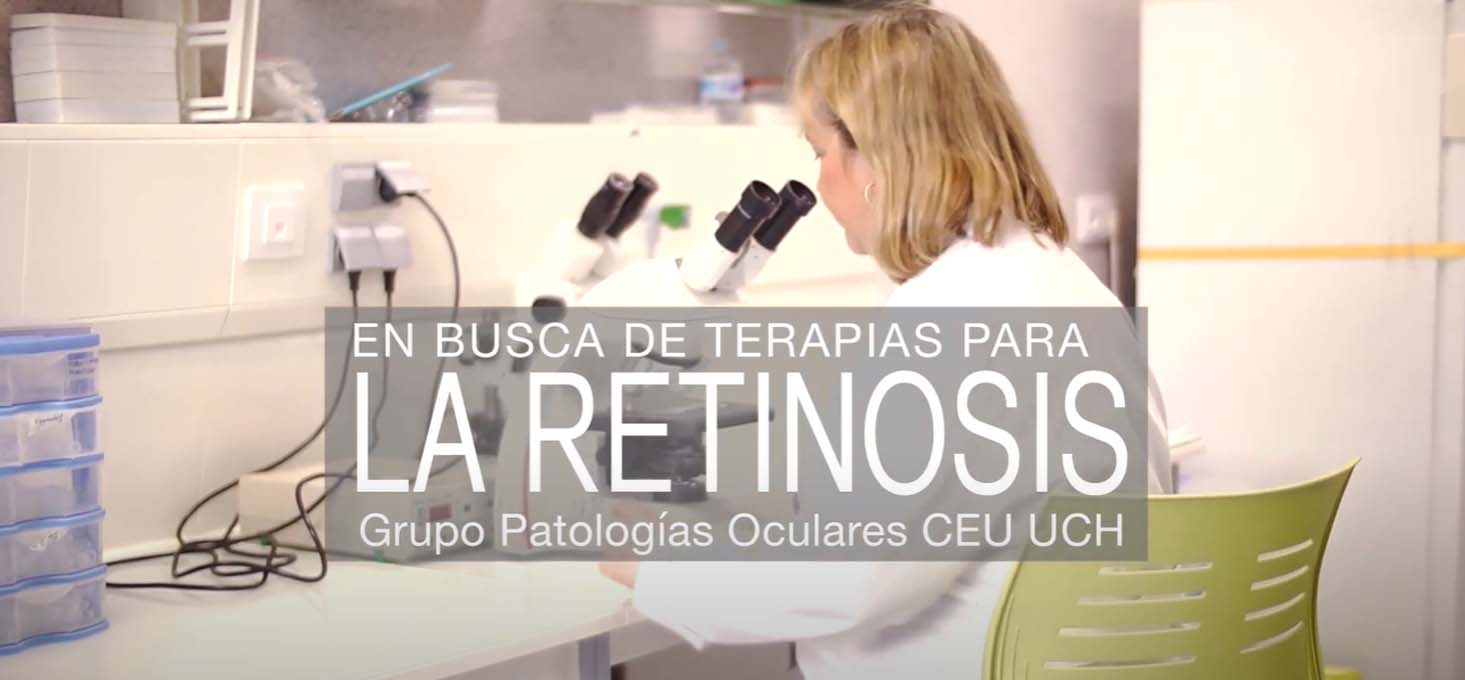
Together for everyone in research
Many of the research projects at the University take an interdisciplinary approach. Because we know that people’s needs are multi-faceted too. And by looking at them in a joined-up way, examining them collaboratively from a broad perspective, across multiple disciplines – in other words, by working together – we can achieve the best outcome for everyone.
From the laboratory to the classroom: Delivering Better Lives

LIAMCEU, our movement analysis research laboratory, is now also our Delivering Better Lives classroom. Through the scientific analysis of the gait of children with neurodevelopmental problems which affect their mobility, we are able to improve the clinical decision-making in orthopaedic surgery, physical rehabilitation, physiotherapy and occupational therapy. Research, teaching and care for patients all come together in the Delivering Better Lives classroom. Both a laboratory and a classroom, it’s a place where students and lecturers can research together to improve the lives of other people.
Improving sustainability through working closely with business
The University works hand in hand with companies to facilitate the Industry 4.0 transition. There are many examples: the development of digital twins; working with the French multinational ESI at Cátedra ESI-CEU, to design predictive models to prevent stoppages and downtime on industrial production lines; or working closely with the US multinational Ford.
We also carry out research with companies to benefit the planet, by enhancing the efficiency of clean energies, such as wind power, or by improving the production of other sources of sustainable energy, such as green hydrogen systems, in our university-business knowledge transfer projects.
Different approaches for living in harmony
If we can live in harmony with each, life is better for everyone. Poor practices by public institutions and private companies negatively impact on all our lives, as they take resources and opportunities away from us. This is another reason for us to come together and pool our efforts to observe, analyse and reflect, from different perspectives, on three key concepts for social harmony: governance, transparency and social responsibility. These are the focuses of a research observatory at the University, which brings together lecturers and researchers in public and administrative law, business administration, communication, ethics, political science and sociology.
It is yet another example of our collaborative approach to research. By sharing knowledge across different disciplines, the outcome is always better and more comprehensive. Better together, for everyone.
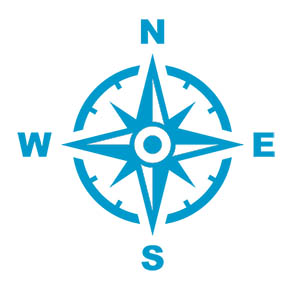
N-E-W-S: wherever research may lead
Four world-class academics in their fields.
Four examples of researchers whose careers have taken them to the four corners of the world.
North, East, West and South: the search for knowledge can take you in any direction or to any continent – science knows no frontiers. The desire to work and collaborate with international experts can take you a long way.
Route 1: Madrid, Paris and Iowa for Juan José Quereda
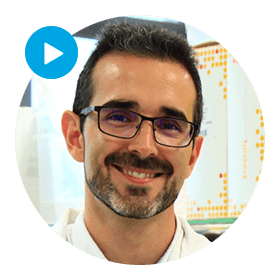
First, Madrid’s Centro Nacional de Biotecnología, and then the Institut Pasteur in Paris. They were just the first stops in Juan José Quereda’s international research career, before he became a Ramón y Cajal researcher at CEU UCH.
As a recognized expert on listeria infections in both humans and animals, Dr Quereda continues to work with colleagues in Madrid and Paris from Valencia, but he also has other international links too, such as with researchers at the University of Iowa.
Route 2: Quick stop in Michigan to pick up an award for Nicolás Montes
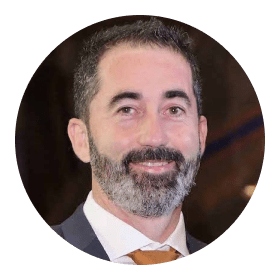
CEU UCH lecturer Nicolás Montes has worked with the Ford Motor Company in Valencia to design a predictive maintenance program to reduce downtime on the carmaker’s production lines. His work was recognized with the prestigious Henry Ford Technology Award, presented to him at the American multinational’s headquarters in Dearborn, Michigan.
And he is also working on improving STEAM education at all levels by leading the European project Dart4City, in which researchers from Italy, Cyprus and Spain have come together to integrate science and technology subjects into school curricula in EU countries.
Route 3: Buenos Aires, Sydney and London for José Ignacio Redondo
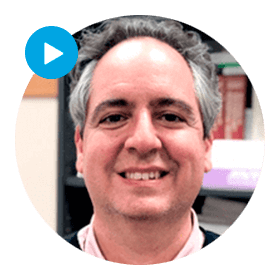
These are just three of the stopovers in José Ignacio Redondo García’s journey as a veterinary anaesthesiologist. In each country, he has contributed to research and progress in the field: in Australia, at the University of Sydney; in the UK, at the Royal Veterinary College in London; in Argentina, at the University of Buenos Aires.
As an international expert in his field, he regularly speaks at the World Congress of Veterinary Anaesthesiology. This year, it was in Venice, but check out the list of previous venues: Kyoto, Cape Town, Glasgow, Santos, Knoxville, Berne and Thessalonika.
In Vienna, he was awarded a prize by the Association of Veterinary Anaesthetists.
In Buenos Aires, he was named an honorary fellow of Argentina’s veterinary anaesthesiology association. And the same again in Chile. Where might the next stop be?
Route 4: Brazil, Vancouver and Bologna for Salvatore Sauro
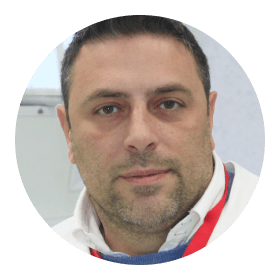
After a research visit to London, Salvatore Sauro was named Visiting Senior Lecturer at the King’s College London Dental Institute. His research at CEU UCH has seen him collaborate with researchers from across the world. He is a visiting lecturer and researcher at the Universidade Federal do Ceará, in Fortaleza (Brazil). He collaborates with Georgia Regents University, in Augusta (USA), with the University of British Columbia, in Vancouver (Canada), and, of course, with the Università di Bologna, in Italy.
His research into dental biomaterials for restorative and preventive dentistry has made him a regular speaker at International Association for Dental Research (IADR) conferences across the world. This international institution, based in Alexandria (USA), has named him as the representative for Spain within its Dental Materials Group.
Route 5: Tunisia, Brazil and Strasbourg for Susana Sanz
The protection of human rights and the best interests of the child have taken Susana Sanz Caballero, a Professor in International Law, across the world in a variety of roles as a researcher, expert, adviser, and trainer.
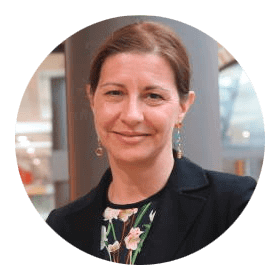
She has recently returned from the University of Strathclyde, in Glasgow, where she was studying the consequences of Brexit on the protection of human rights.
In Tunisia, she has advised the European Union on the issue of unaccompanied child refugees arriving in Europe.
In Peru, she has trained judges, prosecutors and lawyers in the protection of human rights, and has done the same for judges and police officers in Brazil.
She has given the opening speech at Hungary’s Supreme Court.
She was a guest speaker at the regional seminar on the protection of vulnerable people in the Democratic Republic of the Congo (1er Séminaire regional des droits des personnes vulnérables en Afrique Central).
Researchers from universities in Morocco, Italy, Mexico, Peru and Chile have all collaborated in the projects she leads.
She has been awarded two Jean Monnet Chairs by the European Commission: Brussels is now home from home for her. Yet she may now be more often seen in Strasbourg: she has recently been named an ad hoc judge at the European Court of Human Rights.
Route 6: Washington, Dublin and Rome for Emilio García
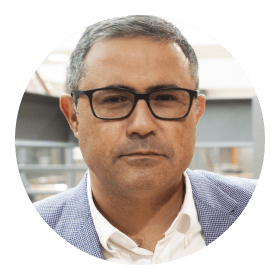
Bioethics and aesthetic medicine: the new concept of the “cosmetically vulnerable” has led Emilio García Sánchez to undertake various research visits at a range of specialist institutions.
He has been a visiting researcher at the Kennedy Institute of Ethics of the University of Georgetown, in Washington.
He has also undertaken a research visit at the Institute of Ethics of Dublin City University, in Ireland, where he gave a seminar to the university’s academics.
He was also a visiting lecturer on a master’s degree programme in bioethics and biological law at the Universidad Católica Santo Toribio de Mogrovejo, in Peru.
He has recently returned from Italy, where he worked with researchers at the Istituto FAST of the Università Campus Bio-medico di Roma.
The impact of his study entitled “Cosmetic vulnerability. The new face of human fragility”, which won the Premio Ángel Herrera for research, is still being felt around the world.
Office of the Vice-Rector for Research
Secretary’s Office
Emilia Marmaneu González
Carrer Assegadors, 2, 46115 Alfara del Patriarca
Tlf. 96 136 90 00/11 . Fax 96 139 52 72 ext. 61203
OTRI (Office for the Transfer of Research Results)
Sara Marqués Saurí
Carrer Assegadors, 2, 46115 Alfara del Patriarca
Tlf. 96 136 90 00 ext. 61294
Beatriz Perelló Marín
Carrer Assegadors, 2, 46115 Alfara del Patriarca
Tlf. 96 136 90 00/11 ext. 61198
Guna Ciekurzne
Carrer Assegadors, 2, 46115 Alfara del Patriarca
Tlf. 96 136 90 00/11 ext. 61193
Ethics Committees
CEIB: Ethics Committee for Biomedical Research
This collegiate body acts under the auspices of the CEU UCH’s Office for the Vice-Rector for Research and its purpose is to ensure research involving human beings complies with ethical research principles, as established by the Declaration of Helsinki, the European Convention on Human Rights and Biomedicine and the guidelines of the Church’s Magisterium.
Biomedical research is key to meeting the challenges facing modern society, to increase social welfare and to improve quality of life and life expectancy. Our aim is to ensure that all our research activity is ethical, safe, legal and of the highest possible standard.
The committee also advise researchers with regard to the performance of biomedical research, ensuring that Spanish and EU legislation is complied with and placing paramount importance on study subjects’ rights and welfare.
If you’re interested in carrying out biomedical research, you need to fill in and submit the appropriate form to [email protected] and, if approved, you will then receive the relevant information and authorization for your study.
The Animal Experimentation and Ethics Committee
Royal Decree 53/2013, of 1st February, regarding the basic regulations for the protection of animals used in experimentation and for other scientific purposes including teaching, was published in the BOE on 8th February, 2013. It is, therefore, now mandatory for all procedures carried out with animals to be assessed by an ethics committee and an authorized body.
CEU UCH has thus created the Animal Experimentation and Ethics Committee in response to this Royal Decree, in order to regulate experimental procedures and teaching in which animals are used.
Our aim is to ensure that all our research activity is ethical, safe, legal and of the highest possible standard.
The committee also advises researchers with regard to the performance of research using animal experimentation, ensuring that legislation is complied with and placing paramount importance on the animals’ welfare.
In April 2017, the CEU UCH was accredited by the Valencian regional government as an authorized body, enabling the University to assess such projects.
If you’re need to experiment on animals to carry our your research, then you must fill in and submit the appropriate form to [email protected] after which you will receive further information in order to proceed with your application.
Institutional declaration regarding the use of animal experimentation
The CEU Cardenal Herrera University has signed up to the agreement on transparency in animal experimentation, proposed by the COSCE, the federation of scientific societies in Spain, in collaboration with the European Animal Research association (EARA) and published on 20th September 2016.
We are well aware of the key role that animal experimentation plays in research regarding the biological mechanisms of disease and the development of new medical treatments. Without this research, many medicines, antibiotics, vaccines and surgical techniques – used in both human and veterinary medicine – would simply not be available.
Some of the scientific research at the CEU Cardenal Herrera University which seeks to contribute to improving quality of life involves animal experimentation, such as in ophthalmology, animal health, surgery and cancer.
The welfare of animals during such experimentation is an issue of great importance to the CEU Cardenal Herrera University, as is respect for, and strict compliance with, the law regarding the protection of animals used for experimentation and other scientific purposes, such as teaching. Our aim is to achieve the highest standards of animal welfare, not only from the point of view of our moral responsibility for the animals, but also because high-quality science can only be carried out while such safeguards. The animal experimentation we undertake complies with legal requirements and is overseen by an animal experimentation ethics committee, which seeks to encourage the use of alternative methods, the reduction in the number of animals used and the enhancement of experimental procedures. No research project requiring the use of animals can proceed without an ethical assessment and final approval from the institution.
The CEU Cardenal Herrera University is also responsible for ensuring that both researchers involved in animal experimentation and staff members in charge of caring for animals possess the necessary training and skills. It is also committed to ensuring the necessary and appropriate resources are provided with regard to facilities, animal feed, welfare and veterinary care for the animals used in research.
Institutes, research chairs and observatories
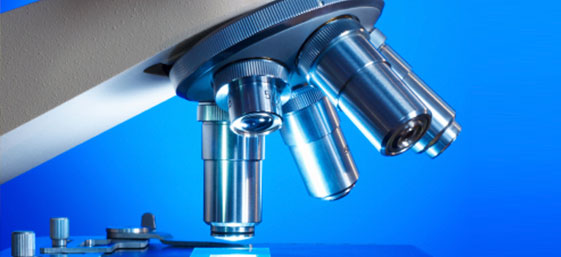
Instituto de
Ciencias Biomédicas
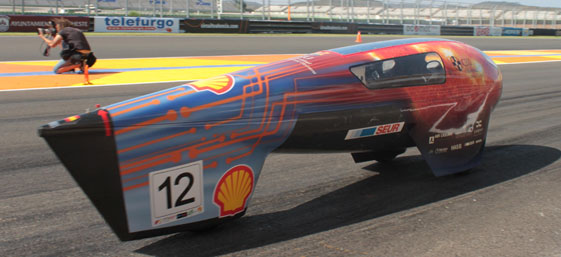
Instituto de Innovación,
Diseño y Tecnología
Research chairs
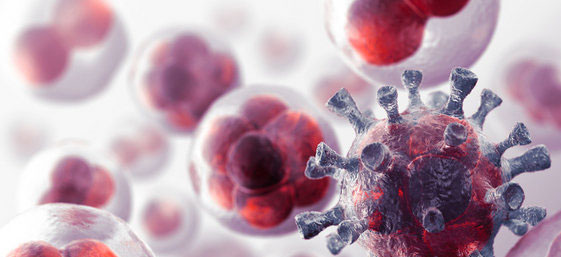
Cátedra "English Cathedra
of Modern Oncology Research"
Observatories
Research grants
Convocatorias Internas
Convocatorias Externas
| Título | Publicación | Plazo | Tipo | Descargas |
|---|---|---|---|---|
| Calendario de convocatorias del Ministerio de Ciencia e Innovación 2024 | Ministerio de Ciencia e Innovación. | martes, 31 de diciembre de 2024 | Convocatorias | |
| Premio Vanguardia de la Ciencia 2024 | La Vanguardia | sábado, 15 de junio de 2024 | Premios | |
| Premios de Innovación Científica para jóvenes investigadores 2024. | Fundación Pfizer | martes, 14 de mayo de 2024 | Premios | |
| Programa Prismas y Problemas. BBVA | Fundación BBVA | martes, 30 de abril de 2024 | Convocatorias | |
| Premio de Divulgación sobre Medicina y Salud Fundación Lilly The Conversation | Fundación Lilly | martes, 30 de abril de 2024 | Premios |
International Student Congress
The International Congress of Students (CIE) of the CEU Cardenal Herrera University aims to encourage interest in the research field among the students of the University. Moreover, it is a transversal activity, in which all students of the University, regardless of their field of study, have an opportunity to participate.
The CIE started in 2003, and now it counts with more than 15 years of experience, and has become one of the most expected event in the University due to its value to our students and those from other Universities. During the two days of the Congress, we recreate the ambience of a professional scientific conference, where researchers present their works to the scientific community. The CIE replicates all the steps that occur in the professional and research reality, so that students go through the whole research experience: from the observation of a real phenomenon or posing a hypothesis that needs to be verified, to the design of the research, the empirical work, the achievement of results and conclusions and the presentation and defense of the research.
If you are a university student, the International Congress of Students (CIE) is an experience you cannot miss, for several reasons:
- You will experience a unique university experience, which is outside of the day-to-day classes and revolves around research.
- You will discover the world of research, within and beyond CEU UCH.
- You will be trained in useful research skills which you will be able put into practice later in your career.
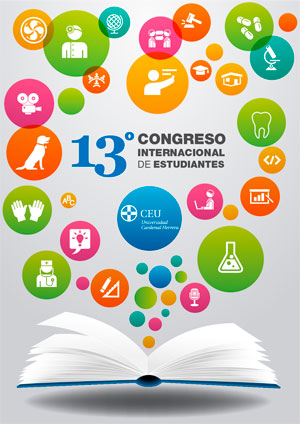
Contact
Congress Coordinator
Organizing Committee of the International Congress of Students
|
|

